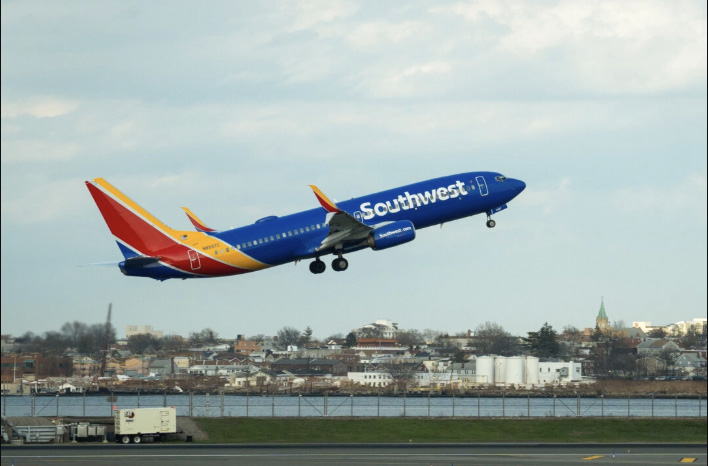By Naveen Athrappully
Contributing Writer
Southwest Airlines will offer travelers the flexibility to choose their seats on flights, ending the open seating system it currently follows, the company said in a Monday statement.
Starting July 29, passengers will have “options to select their seat at the time of booking for flights beginning on Jan. 27, 2026,” the statement said.
Customers will be able to choose from various fare bundles, with some offering seat-selection options, such as extra legroom, preferred and standard.
Standard seats are located in the back of the cabin, while preferred seats are located near the front. Extra legroom seats, at the front and near exit rows, provide up to 5 additional inches of legroom compared to other options. Customers will also be able to purchase seat upgrades.
Southwest’s decision ends the airline’s open-seating system, under which passengers chose their seats after boarding flights.
Beginning Jan. 27, 2026, the airline plans to also start a new group-based boarding process.
The company will prioritize customers for boarding based on their seating choices, with those opting for extra leg room seats assigned to the first two boarding groups.
“Premium fares and Southwest’s most loyal Customers — Tier Members and Credit Cardmembers — will board earlier in the process,” it said.
Customers who want to be among the first to board can buy priority boarding beginning 24 hours before departure, according to the company.
“Our customers want more choice and greater control over their travel experience,” said Tony Roach, executive vice president of customer and brand at Southwest.
“Assigned seating unlocks new opportunities for our customers — including the ability to select extra legroom seats — and removes the uncertainty of not knowing where they will sit in the cabin.”
The airline had announced plans to shift to assigned seats in a July 25 statement last year. The company said at the time that 80% of Southwest customers, and 86% of potential customers, preferred an assigned seat, according to research.
“When a customer elects to stop flying with Southwest and chooses a competitor, open seating is cited as the No. 1 reason for the change. By moving to an assigned seating model, Southwest expects to broaden its appeal and attract more flying from its current and future customers,” the airline said at the time.
Assigned seat fee collection has been a hotly debated issue. A November 2024 report from the Senate Permanent Subcommittee on Investigations found that five airlines — American, Delta, United, Frontier and Spirit — made $12.4 billion in seat fee revenues between 2018 and 2023.
During a Dec. 4, 2024, hearing of the subcommittee, Rep. Richard Blumenthal, D-Conn., criticized airline seat fees.
Such fees are “not airfare,” he said.
“That is just fees for booking a specific seat in advance or selecting a slightly better seat.
“One airline even admitted in our investigation that they hide seat fees from customers until late in the booking process because doing so leads to more customers completing their purchase.”
During the hearing, Andrew Nocellam, chief commercial officer at United Airlines, justified the seat fees charged by the company.
The airline has customers who seek more services for an incremental fee, such as a seat with extra legroom, he said.
“There is strong customer demand for a diverse array of booking and service options,” he said.
Besides assigned seats, Southwest announced in March that passengers who are not members of certain programs, such as Rapid Rewards A-List Preferred Members and those traveling on Business Select fares, will be charged for their first and second checked bags for flights.








